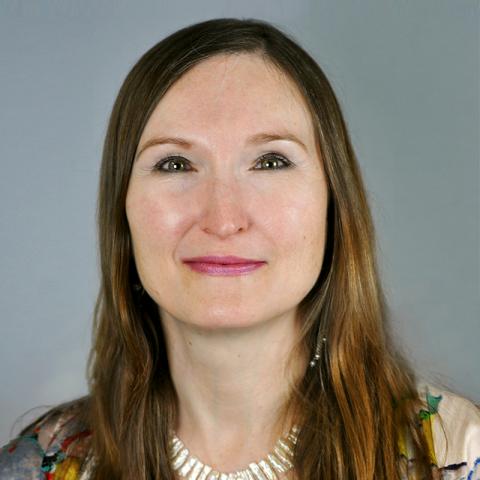Africa Will Be Short 6 Million Health Workers by 2030
But its countries could still achieve universal health coverage if they take action now.


"I’ve always been committed to primary care,” says Kate Tulenko, a physician and global health specialist. “Recruiting and training people locally, and recruiting and training people in primary care are part of the solution to the global shortage of health workers."
When Tulenko joined the World Bank in 2002, she was surprised to see that no one was working on issues related to the health workforce, which plays a huge role in whether or not a community can thrive and prosper. So she helped create the Africa Health Workforce Program to address the shortage, low productivity, and maldistribution of health workers throughout Africa.
In addition to her work at the World Bank, she has been an advisor to national governments on health policy and reform and served on expert panels for the World Health Organization, the American Public Health Association, the Global Health Workforce Alliance, and the American Hospital Association. Tulenko offers consulting services in a variety of fields, including workforce planning and management, health systems innovation, and universal access to care.
But its countries could still achieve universal health coverage if they take action now.
The health sector will likely become the largest source of job creation worldwide for the next decade.
We must move more quickly to keep the cost of Zika—estimated at $5 billion—from doubilng or tripling, says Dr. Kate Tulenko in the new issue of Global Health & Diplomacy
Last week's talks in Ethiopia resulted in a powerful new advocacy tool: the Addis Ababa Call to Action on financing the health workforce.
mPowering Frontline Health Workers sits down with Dr. Kate Tulenko to talk about community health workers and how data about them can improve global health.
Within the global health and development ecosystem, the health workforce is the keystone of sustainable development. Now is the time to make health workers a priority.
How much do eHealth and mHealth initiatives truly cost? It’s time we start working together to find out.
Calling all young people: It's time to take the lead in global health. And don't forget to show your work along the way.
If you work in global health, what's happening at the Third Global Forum on Human Resources for Health should be important to you.
Focusing on the UN High-Level Commission on Health Employment and Economic Growth, this paper examines its potential impact on primary healthcare to communities. It contains a set of curated...
The dearth of health workers in rural settings in Lao People’s Democratic Republic (PDR) limits healthcare access and outcomes. In evaluating non-wage financial incentive packages as a potential...
The World Health Organization (WHO) Global Strategy on Human Resources for Health: Workforce 2030 sets out the policy agenda to ensure a workforce that is fit for purpose to attain the targets of the...
This Ebola SMS course is designed to help get information quickly to health workers in Ebola-affected and at-risk countries.
This technical brief highlights some examples of how the education and research leadership of health professional schools has engaged, influenced, or obtained resources from national policy-makers...
IntraHealth International has developed an Ebola interactive voice response (IVR) course.